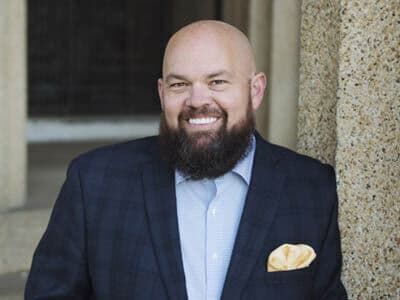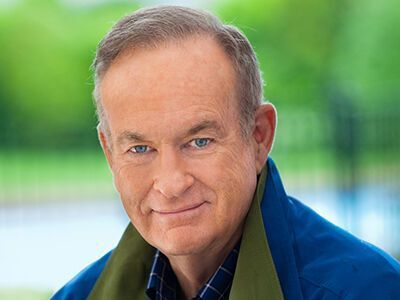Millions of dollars spent on redistricting commercials
Regional News

Audio By Carbonatix
5:40 PM on Tuesday, October 14
Madeline Shannon
(The Center Square) – As the California special election heats up in the weeks leading to voters saying yay or nay on Gov. Gavin Newsom’s congressional redistricting effort, big money continues to fuel campaigns for and against it.
Some of that money is paying for a new pro-Proposition 50 advertising campaign, paid for by billionaire Tom Steyer, featuring a television commercial set in the near future depicting President Donald Trump watching news coverage of the passage of measure. That commercial is part of Steyer’s “Stick it to Trump” campaign encouraging California voters to vote yes on Prop. 50 to pick up five more Democratic seats in the U.S. House. That's the response by California Democrats to Texas drawing new districts to add five more Republican seats.
In the new commercials, Trump is portrayed by an actor, appearing to throw fast food at the TV and yelling at the screen as results of the Prop. 50 vote, scheduled for Nov. 4, are announced.
Steyer announced last week he would donate more than $12 million to the pro-Prop. 50 campaign, according to media reports. His name is on the "Stick It To Trump" commercials that are now airing.
Steyer’s pro-Prop. 50 ad was released after campaign ads against Prop. 50, paid for in large part by California billionaire Charles Thomas Munger Jr., one of the ballot initiative’s biggest opponents.
Munger has contributed more than $32 million to the Project Voters First Committee, which opposes the proposition, according to the Fair Political Practices Commission.
The anti-Prop. 50 ads Munger paid for depict a large weight being dropped on the phrase “Fair Elections” spelled out in carefully crafted wooden letters, shattering the letters as criticism of the proposition plays out over the screen.
The evocative commercials highlight two sides of what is shaping up to be a contentious battle between supporters and opponents of the redistricting effort, who favor current congressional district lines drawn by the state’s independent Citizens Redistricting Commission. The commission was created in 2008 after voters in California passed the Voters First Act, which authorizes the commission to redraw district lines for California’s state Senate and Assembly districts, as well as State Board of Equalization Districts.
Two years later, California voters authorized the commission to also redraw congressional district lines with the Congressional Voters First Act.
Munger donated $1.4 million to pass Proposition 11, the 2008 measure creating the redistricting commission. And he spent about $12.2 million to support Proposition 20, which expanded the commission's duties to include drawing congressional districts. He also spent $12.2 million to defeat Proposition 27, a 2010 measure to eliminate the commission.
Prop. 50, or the Election Rigging Response Act, is Newsom’s answer to Texas’s redrawing of congressional district lines and is meant to offset the five congressional seats Texas Republicans have the potential to swing in 2026. Texas Gov. Greg Abbott, a Republican, signed his state’s new congressional redistricting bill into law in August, stating that the move was necessary to ensure fairer representation in Congress for Texas’ voters.
The Texas move was seen by Newsom as an attack on California’s mostly Democratic voters, Newsom said in a news release the same month.
“California and Californians have been uniquely targeted by the Trump Administration, and we are not going to sit idle while they command Texas and other states to rig the next election to keep power — pursuing more extreme and unpopular policies,” said Newsom in that news release. “This proposal would give Californians a choice to fight back — and bring much needed accountability and oversight to the Trump Administration.”
Despite Newsom’s efforts to seek what he sees as a balance representation in Congress, Republican legislators don’t believe Newsom’s redistricting effort will ultimately serve that purpose.
“What will end up happening is you’ll have predetermined elections that I think are bad for Democrats, independents and Republicans,” said state Sen. Tony Strickland, R-Huntington Beach.
“When you already know who the winner is before the election even starts, I don’t think that’s healthy for our democracy, and that’s exactly what will happen," Strickland told The Center Square Tuesday. "If 50 passes, we’ll have no competitive congressional races in California.”
Senate Minority Leader Brian Jones, R-San Diego, weighed in Tuesday about the ballot initiative, as well as the ads promoting and opposing Prop. 50.
“I think it’s telling that we see the ‘yes’ campaign drawing all the attention to the President and away from the actual merits of the measure," Jones told The Center Square in a statement Tuesday. "Prop. 50 is not an attack on the President; it’s an attack on Californians. On their right to true democratic representation free from political gamesmanship and gerrymandering. It’s an attack on our state constitution and on democracy as we know it in the Golden State."
"The ‘yes’ campaign can broadcast all the ‘orange-man-bad’ jokes they want," Jones said. "At the end of the day, they know they’re on the wrong side of history and I believe the voters know that too and that it’ll show on November 4th.”
Biggest donors for and against Prop. 50
The Fair Political Practices Commission’s Prop. 50 database shows that as of Tuesday, more than $43.9 million has been contributed by the effort’s top supporters toward the passage of Newsom’s congressional redistricting effort. More than $40.8 million has been contributed toward opposing the proposition by its most ardent detractors.
According to the Fair Political Practices Commission, the single biggest contributor raising money for the ballot initiative, the D.C.-based HMP for Prop 50, gave more than $10.9 million through Sept. 20 for Prop. 50’s passage. By comparison, $5 million was contributed in opposition by another D.C.-based group, No on Prop 50 Congressional Leadership Fund.
Again, media reports have cited Seyer, a Democrat who ran for president in 2020, announcing he would contribute more than $12 million for the campaign to pass Prop. 50.
However, the single biggest contributor against the ballot initiative, Munger, has so far spent $32,790,000 against Prop. 50’s passage, according to the Fair Political Practices Commission. No one single individual has matched that figure in supporting Prop. 50, the FPPC portal shows, but several other committees and groups together have contributed more than $41.4 million to advance the proposition.
Some of these top contributors include New York-based Fund for Policy Reform, which has contributed $10 million, followed by the California Nurses Association and the California Teachers Association Issues PAC, which have given $3.2 million and more than $3 million, respectively.
Other top contributors toward passage of Prop. 50 include the D.C.-based National Education Association, which has so far contributed $3 million, and Newsom for Governor 2022, which contributed $2.6 million. Consumer Attorneys of California Issues Political Action Committee and Working for Working Americans Sponsored by United Brotherhood of Carpenters each separately contributed $2 million.
Two of the top individuals who gave outsize donations to the passage of Prop. 50 included just two people -- Michael Moritz, a Californian, and Gwendolyn Sontheim, a resident of Minnesota, according to the Fair Political Practices Commission.
In opposition to Prop. 50, some of the top contributors included the D.C.-based No on Prop. 50 Congressional Leadership Fund, which put in $5 million; the Maryland-based Kevin McCarthy for Congress, which contributed $1 million, and Thomas M. Siebel, a California resident, who gave $1 million.
Other contributors to the No on Prop. 50 - Stop Sacramento’s Power Grab Committee included the Wisconsin-based Jim Jordan for Congress, which gave $300,000; the Ken Calvert for Congress/Eureka Political Action Committee, which gave more than $276,000; Redding Rancheria, which gave $150,000, and Vince Fong for Congress, Ranch Management LLC and Jay Obernotle for Congress, which each gave $100,000.
Calvert, Fong and Obernolte are Republican congressmen in California. Calvert is among the five Republican congressmen in California at risk of losing their seats if Proposition 50 passes, as The Center Square previously reported.
Other top contributing committees to the effort to pass Prop. 50 include the Advocacy Action Fund, consisting of Wendy and Eric Schmidt, listed as California residents. That committee has raised $1 million in support of Prop. 50, and the Progressive Era Issues Committee, which also supports Prop. 50, has raised $1.52 million, according to the most recent filings available from the Fair Political Practices Commission.
“California will not be a bystander to Trump’s power grab,” said Assembly Speaker Robert Rivas, D-Salinas, in a news release from Newsom’s office in August. “We are acting to defend our state from his attacks, by taking it directly to the voters. Californians believe in democracy and freedom, and we will not stand by while the House is hijacked by authoritarianism.”







